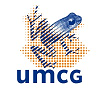- Zoek vacatures
- Groningen
- PhD position: Professional identify formation of physician-scientist

PhD position : Professional identify formation of physician-scientist
UMCGGroningenPosted on December 7, 2023
Topic
In the ever-evolving landscape of medicine and scientific research, the role of physician-scientists has become increasingly important. Physician-scientists bridge the gap between patient care and groundbreaking research and are indispensable in advancing medical knowledge, improving patient care, driving innovation, and tackling complex healthcare challenges. However, despite their importance, recruiting physician-scientists remains a significant challenge.
At the UMCG / RUG we also very much value the scientific training of our medicine students enabling them to to develop the biomedical research mindset they need to become evidence-based professionals. However, we do not know whether our current scientific training and (extracurricular) activities are effective. Do medical students who follow this educational path develop the attitudes, values, and behaviors expected of a physician-scientist? Do these students truly embody the mindset and behavior (feel, act and think) of a physician-scientist? How and why do they stay connect (or not) to research activities after the medical training? Understanding this trajectory from recruitment to graduation and beyond is fundamental to devise interventions that optimize our efforts to deliver to society the next generation of physician-scientists. This trajectory is known as professional identity formation.
Research project description
In this research project, we seek to uncover the fundamental values, factors, experiences & influences that shape and sustain the professional identities of medical students on their journey to becoming physician-scientist. We will explore this transformational process as they progress through their training and embark on their professional career. This research will utilize qualitative methods such as thematic analysis and grounded theory, as well as psychometrically-sound measures for quantitative analysis. The expected impact of this project includes new insights that enable us to intervene and customize the current scientific training of medicine students. Ultimately, this will contribute to the positive formation of a professional identity as a physician-scientist. Knowledge gained from this project will support the design of educational strategies aiming for the attracting, recruiting and expanding the physician-scientist workforce.
Working environment
The University Medical Center Groningen (UMCG) is the largest employer in the Northern Netherlands. The UMCG boasts a supportive research environment that fosters interdisciplinary collaboration, professional development, and networking. The present research project is being carried out at the Department of Genetics of the UMCG and the Wenckebach Institute for Education and Training (WIOO). It will be part of the Lifelong Learning, Education, and Assessment Research Network (LEARN) program at the UMCG Graduate School Medical Sciences.
The Department of Genetics provides patient care, conducts scientific research, and offers education and training at a very high level of quality. The department of Genetics is highly active in teaching, coordinating, and managerial roles in various educational programs within the UMCG and the Faculty of Science & Engineering. Additionally, the Department of Genetics contributes significantly to research-based education and educational innovation.
The WIOO provides advice, training, and guidance to departments and educators for the innovation of educational programs and other learning and development initiatives. The WIOO also conducts scientific research on education for healthcare professionals and translates the findings into the development of new and existing educational programs.
What do we need?
We are looking for a qualified candidate with a master’s degree in medicine or social sciences (preferably psychology or educational sciences). Candidates holding a different master’s degree, combined with a Bachelor’s degree in medicine, psychology, or other social sciences, will also be considered. You should have an interest in or direct experience with medical education and scientific training, as well as experience with research methodologies used in social and behavioral sciences. It is important that you are familiar with the concepts of professional identity formation and exhibit strong statistical skills. Additionally, you should be enthusiastic, curious, analytical, and critical. Given the international background of the research team and the collaborative nature of the research, it is essential to possess excellent English communication and collaboration skills.
What do we offer?
The UMCG offers a full-time employment PhD position contract for a duration of 4 years (36 hours per week). Your salary will be a minimum of € 2.789,- gross per month in the first year and a maximum of € 3.536,- gross per month (scale PRO) in the final (4th) year, based on a full-time appointment. In addition, the UMCG will offer you 8% holiday pay, and 8.3% end-of-year bonus. The conditions of employment comply with the Collective Labour Agreement for Medical Centres (CAO-UMC). After one year, the candidate's performance will be evaluated to determine whether there is sufficient progress to expect a successful completion of the PhD thesis within the next three years.The conditions of employment comply with the (CAO-UMC).
The UMCG has a preventive Hepatitis B policy. This means that you may be required to have built up sufficient protection against Hepatitis B before your appointment. If necessary, the UMCG will provide the vaccination.
How to apply?
Full applications, including a motivation letter, your CV, and at least two contacts for reference letters, will receive full consideration if submitted before the 15th of January 2024. You can only apply using the digital application form on the UMCG website and upload the relevant documents. Applications sent to the indicated email address will not be processed. Following your application, you will receive an email confirmation.
Information
For more information about the project or for any other inquiries, please contact Dr. Dineke VerbeekVerbeek (Associate Professor Neurogenetics & Researcher in education), at d.s.verbeek@umcg.nl or Prof. Marco Carvalho Filho (Professor of Health Professions Education and Training) at m.a.de.carvalho.filho@umcg.nl
More information about LEARN and the Department of Genetics can be found here :
https : / / umcgresearch.org / w / learn and https : / / umcgresearch.org / w / genetics.